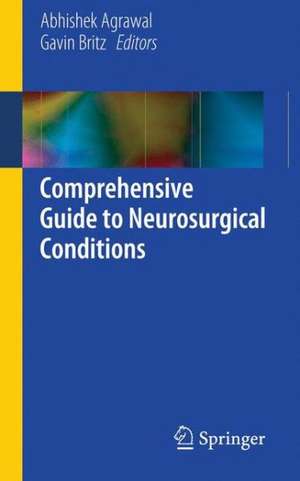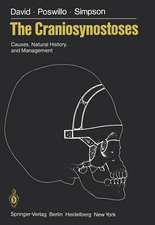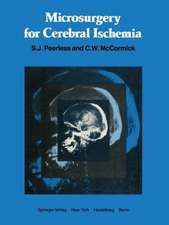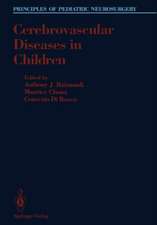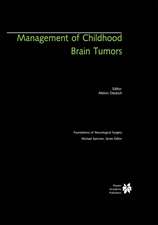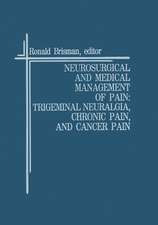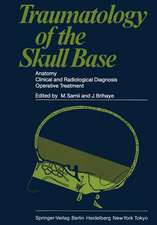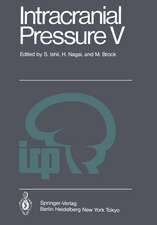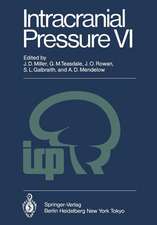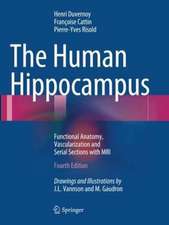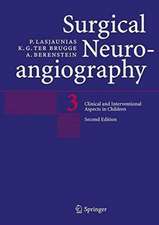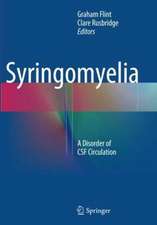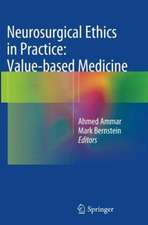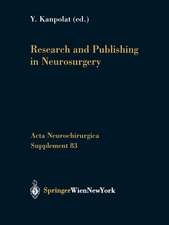Comprehensive Guide to Neurosurgical Conditions
Editat de Abhishek Agrawal, Gavin Britzen Limba Engleză Paperback – 18 dec 2014
Preț: 360.14 lei
Preț vechi: 379.09 lei
-5% Nou
Puncte Express: 540
Preț estimativ în valută:
68.92€ • 71.69$ • 56.90£
68.92€ • 71.69$ • 56.90£
Carte tipărită la comandă
Livrare economică 14-28 aprilie
Preluare comenzi: 021 569.72.76
Specificații
ISBN-13: 9783319065656
ISBN-10: 3319065653
Pagini: 250
Ilustrații: X, 187 p. 38 illus., 28 illus. in color.
Dimensiuni: 127 x 203 x 10 mm
Greutate: 0.2 kg
Ediția:2015
Editura: Springer International Publishing
Colecția Springer
Locul publicării:Cham, Switzerland
ISBN-10: 3319065653
Pagini: 250
Ilustrații: X, 187 p. 38 illus., 28 illus. in color.
Dimensiuni: 127 x 203 x 10 mm
Greutate: 0.2 kg
Ediția:2015
Editura: Springer International Publishing
Colecția Springer
Locul publicării:Cham, Switzerland
Public țintă
Popular/generalCuprins
1. Basic Neuroanatomy.- 2. Basic Neurology.- 3. The Neurosurgery Healthcare Team.- 4. Neurological Intensive Care Unit.- 5. Common Neuroradiological Procedures.- 6. Pre-Operative and Peri-Operative Period.- 7. Basic Neurosurgical Procedures.- 8. Neurosurgical Emergencies.- 9. Symptomes and Signs in Brain Disease.- 10. Sports Related Concussion Injuries.- 11. Radiotheraphy for Brain and Spine Disease.- 12. Peripheral Nerve Problems.- 13. Rehabilitation of Neurosurgical Conditions.- 14. Brain Death.- 15. Organ Donation.- 16. Second Opinions.- 17. Nursing Perspective: Dealing with Patients with Neurological Conditions.
Recenzii
“This is a concise summary of important areas in neurosurgical philosophy, diagnosis, treatment, and prognoses. It will serve as a reference to both students and house officers as a quick review of some of these essentials.” (Joseph J. Grenier, Amazon.com, May, 2015)
Notă biografică
Dr Abhishek Agrawal, M.D.: House Staff, Department of Neurosurgery/ Radiology, Brigham and Women’s’ Hospital, Harvard Medical School, Boston. Dr Gavin Britz, MBCCh, MPH, FAANS: Chairman, Department of Neurosurgery, Methodist Neurological Institute, Houston, Texas.
Textul de pe ultima copertă
This comprehensive guide answers commonly asked questions about neurosurgical conditions related to brain and spinal cord. Comprehensive Guide to Neurosurgical Conditions fills the gap which arises after a diagnosis is made on the loved one, explaining the basics of neurosurgical diseases and their management.
Comprehensive Guide to Neurosurgical Conditions, looks at the Neurosurgical team, the Intensive Care Unit and the basic as well as the emergency neurosurgical procedures in a comprehensive and concise matter. Comprehensive Guide to Neurosurgical Conditions, which is part of a book set including Emergency Approaches to Neurosurgical Conditions, delves into different kinds of brain surgeries, tumors and the management of stroke in chapters written by reputed neurosurgeons worldwide, to help the physicians, the patients and their families cope with all aspects of neurosurgery.
Comprehensive Guide to Neurosurgical Conditions, looks at the Neurosurgical team, the Intensive Care Unit and the basic as well as the emergency neurosurgical procedures in a comprehensive and concise matter. Comprehensive Guide to Neurosurgical Conditions, which is part of a book set including Emergency Approaches to Neurosurgical Conditions, delves into different kinds of brain surgeries, tumors and the management of stroke in chapters written by reputed neurosurgeons worldwide, to help the physicians, the patients and their families cope with all aspects of neurosurgery.
Caracteristici
This book is a comprehensive guide for patients and families under neurosurgical care It is co-authored by reputed neurosurgeons in the country, who have a mastery in the subject This book is from the physicians and the patients/families to the future patients and families whose loved ones are under neurosurgical care or in the neuro-intensive care unit
